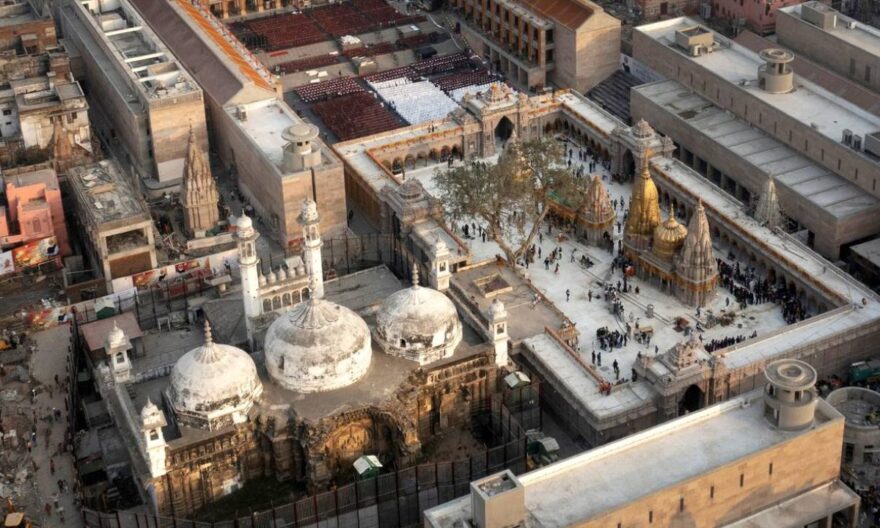
The Supreme Court on Friday refused to interfere with the Allahabad High Court order allowing the Archaeological Survey of India (ASI) to conduct a scientific survey of the Gyanvapi mosque premises.
During the hearing, the Supreme Court asked the Muslim party why they should interfere in the High Court’s order. The ASI had also conducted a survey in the Ayodhya case. What is the problem with the ASI survey? What harm will the Gyanvapi premises suffer from the survey that cannot be rectified? During the debate, the Muslim party’s counsel placed a condition that the survey report be placed in a sealed envelope. The Supreme Court responded that the ASI’s survey report will remain open, it will not be placed in a sealed envelope.
Furthermore, the Muslim party’s lawyers were unable to satisfactorily answer the Supreme Court.
Subsequently, the bench led by CJI DY Chandrachud ordered that the High Court’s order for a scientific survey of the Gyanvapi premises is appropriate, and there is no need for intervention at this stage.
Prior, when the Muslim party repeatedly objected, CJI DY Chandrachud stated that we will take the statement of the SG on record. ASG Tushar Mehta stated in court that the ASI will continue its survey, and no excavation will take place without the court’s order. The ASI survey will involve the presence of experts and will be fully videographed.
Moreover, the Supreme Court told the Muslim party that the ASI’s survey will not just be a document, but it will also include important evidence for both parties.
During the hearing, the Masjid Committee argued that tampering with old things would violate the 1991 law, which prevents changing the character of religious places present since 1947. The Masjid Committee stated that the purpose of the ASI survey in the premises is akin to going back in history, as it will reopen wounds from 500 years ago.
The Muslim party’s counsel, Huzefa Ahmadi, stated that an order had been given to protect the area of the fountain inside the mosque. The Court responded that they remember. The High Court already recorded the ASI’s assurance, so what is the issue now? The ASI has stated that there will be no harm. The Supreme Court further stated that they will not interfere at this stage with the High Court’s order for the ASI survey.
Prior to this, on Friday morning, a 40-member ASI team began the scientific survey of the Gyanvapi. The team mapped the Gyanvapi mosque premises.
The team also photographed everything within the survey area of the premises.
Additionally, the entire process is being videographed.
During the Supreme Court hearing, when the Muslim party’s lawyers appeared to weaken their stance, they raised the issue of the Places of Worship Act. Hufaiza Ahmadi, Counsel for the Muslim party, argued that Section 2(b) of the Places of Worship Act prevents any change in its status defines conversion.
Following this, the Chief Justice responded that you are correct as the interpretation of Section 2(b) of the Act is broad. It is clear from the Act that the religious character of a place of worship should not be altered.
However, it will also be necessary to determine what the religious character was before that.




